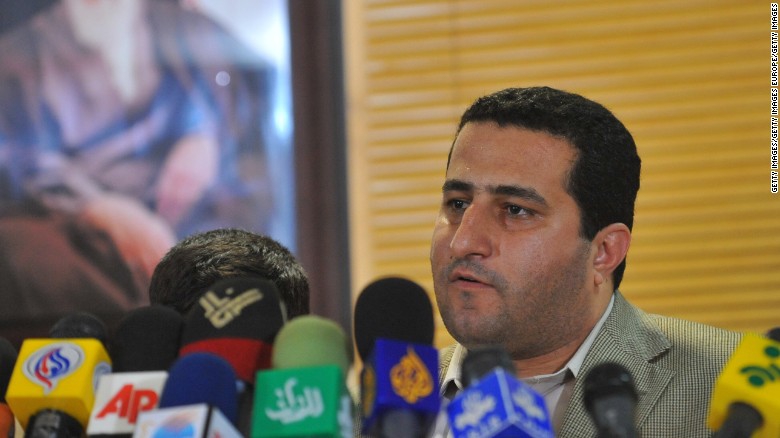Saturday 6 August 2016 - 23:24
Story Code : 225917
Cryptic Clinton emails may refer to Iranian scientist
(CNN)-New Hillary Clinton emails released by the State Department appear to lift the curtain on the bizarre circumstances surrounding Shahram Amiri, an Iranian nuclear scientist who claims to have been abducted by the CIA.
The just-released emails, which were sent to Clinton back in 2010, seem to support what State Department sources have long maintained: that Amiri was not abducted, but a defector and paid informant who changed his mind about helping the U.S.
The emails also appear to offer insight into the department's plans to get Amiri back to Iran safely.
Amiri's complicated story began in 2009, when he mysteriously disappeared while on a religious pilgrimage in Saudi Arabia. Almost immediately, Tehran accused the U.S. of abducting him. The U.S. denied the accusation, saying it had no knowledge of Amiri's whereabouts.
Fast forward to nearly a year later, when a series of videos surfaced online of a man claiming to be Amiri.
In them, he denied being a defector and claimed to have been hiding out from CIA operatives in Virginia. In a subsequent video, however, he said he was living freely in Arizona.
Two weeks later, on July 14, 2010, CNN reported that Amiri had returned to Tehran after going to Iran's interest section at the embassy of Pakistan in Washington. CNN's report appears to directly correspond with an email Clinton's top foreign policy adviser Jake Sullivan sent her, now being released by the State Department.
In the email -- written two days before the CNN report -- Sullivan expressed fear of the media catching wind of the story, writing: "The gentleman you have talked to Bill Burns about has apparently gone to his country's interests [sic] section because he is unhappy with how much time it has taken to facilitate his departure. This could lead to problematic news stories in the next 24 hours. Will keep you posted."
An earlier email seemingly shows how the State Department worked to carefully craft Amiri's return to Iran.
The email, written by Richard Morningstar, acting special envoy of the U.S. secretary for eurasian energy at the time, was sent to Clinton on July 5, 2010, just days after the videos purportedly of Amiri were posted online and less than two weeks before he left the U.S.
The email appears to reference Amiri's hesitation at continuing on as a defector and his wish to leave the U.S.
"Per the subject we discussed, we have a diplomatic, 'psychological' issue, not a legal issue," Morningstar wrote. "Our friend has to be given a way out. We should recognize his concerns and frame it in terms of a misunderstanding with no malevolent intent and that we will make sure there is no recurrence. Our person won't be able to do anything anyway. If he has to leave, so be it."
After arriving in Tehran, Amiri repeated his allegation that he was kidnapped by American intelligence agents.
In an interview with state-run Press TV, he said he faced "psychological warfare and pressure that are much worse than being in prison."
Following his return to Iran, a U.S. official stressed Amiri was not kidnapped or coerced and claimed Amiri received about $5 million from the United States in return for his information.
A second official referred to the payment as a "long-term benefits package" that enabled Amiri to defect and comfortably resettle in the United States for many years.
The first official went on to say Amiri left because he "wanted to see his family and -- unfortunately -- he chose a dumb way to do it, lying about what happened to him here to try to build up his credibility back home."
Neither Clinton nor State Department spokespeople would confirm the emails referred to Amiri, but dates of emails correspond exactly with news reports about him.
While not marked classified, the emails could provide more evidence that Clinton's aides were using veiled references to keep her apprised of sensitive matters on her private email account. Use of the non-government email and re-classification of emails as classified has become a main point of criticism against Clinton by Republicans. Two of Clinton's top aides at the State Department, Sullivan and Cheryl Mills are set to be privately interviewed this week about their emails by a special congressional committee set up to probe reaction to the 2012 Benghazi terror attack.
By CNN
# Tags











